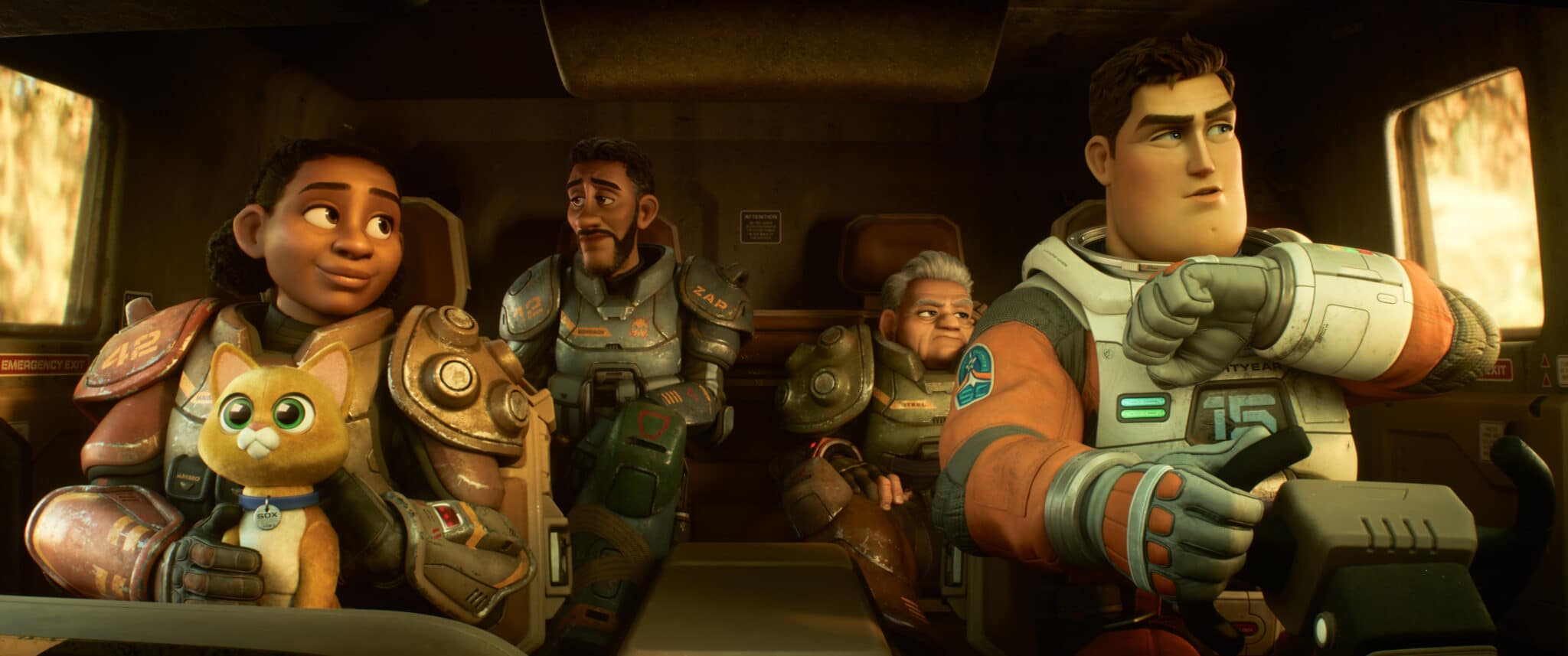Disney refuses to cut same-sex kiss from Lightyear after film banned from 14 countries

Buzz Lightyear is marooned on a planet. © 2021 Disney/Pixar. All Rights Reserved.
Disney-Pixar’s upcoming film Lightyear has been banned in 14 different countries following the re-inclusion of a same-sex kiss.
The spin-off of the critically acclaimed Toy Story movie franchise will not make it to cinemas in several countries including Saudi Arabia, The United Arab Emirates (UAE) and Lebanon.
The UAE’s Media Regulatory Office announced on Twitter that Lightyear – which is to be released on 16 June – is to be denied license for public screening due to a “violation of the country’s media content standards”.
The regulatory body confirmed in a tweet: “The office confirms that all films screened in cinemas across the country are subject to follow-up and evaluation before the date of screening to the public, to ensure the safety of circulated content according to the appropriate age classification.”
Article 356 of the UAE penal code, among other laws, prohibits sexual activity outside of different-sex marriage with a minimum sentence of one year. Similar laws apply to other listed countries who have banned the film’s public screening.
This comes a few months after Disney reinstated the same-sex kiss scene – which, according to The Hollywood Reporter, involves the character Hawthorn kissing her partner – following an open letter from Disney-Pixar lambasting its parent company for suppressing “overtly gay affection”.
“We at Pixar have personally witnessed beautiful stories, full of diverse characters, come back from Disney corporate reviews shaved down to crumbs of what they once were,” the letter reads.

As well as UAE’s vocal announcement, other countries included in the ban list are Kuwait, Egypt, Indonesia, Malaysia and more. It’s also unlikely that the film will release in China according to the South China Morning Post.
This comes as no surprise to film producer Galyn Susman who, in an interview with Reuters, put her foot down in defence of the stories Pixar creates, saying: “We’re not going to cut out anything, especially something as important as the loving and inspirational relationship that shows Buzz what he’s missing.
“It’s great that we are part of something that’s making steps forward in the social inclusion capacity, but it’s frustrating that there are still places that aren’t where they should be.”
Of course, this isn’t the first time the UAE and other countries have banned Disney property media for inclusive content, let alone cinema at large. Doctor Strange in the Multiverse of Madness was given a similar fate after character America Chavez, who is gay, was featured in the film.

